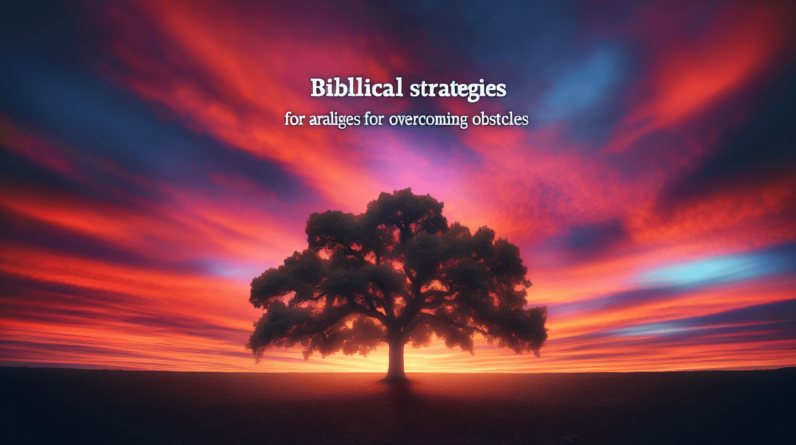In the realm of faith and spirituality, the concept of forgiveness holds immense significance. It is not only a cornerstone of moral values but also a powerful tool for personal growth and healing. In the Bible, forgiveness takes center stage as a vital practice that is both encouraged and celebrated. This article aims to explore the profound importance of forgiveness within the pages of the Bible, highlighting the transformative effects it can have on individuals and their relationships. By understanding the true essence of forgiveness, we can unlock a path towards a more compassionate and harmonious existence.

This image is property of images.pexels.com.
Forgiveness in the Old Testament
Forgiveness as an essential aspect of God’s character
In the Old Testament, forgiveness is portrayed as an essential aspect of God’s character. The Hebrew word for forgiveness, “salach,” is derived from a root word meaning “to pardon” or “to be gracious.” Throughout the Old Testament, we see numerous examples of God’s forgiveness towards His people. For instance, in Exodus 34:6-7, God reveals Himself to Moses as “The LORD, the LORD, the compassionate and gracious God, slow to anger, abounding in love and faithfulness, maintaining love to thousands, and forgiving wickedness, rebellion, and sin.” This verse highlights forgiveness as one of God’s core attributes, demonstrating His willingness to pardon sins and offer second chances to His people.
The importance of repentance for receiving forgiveness
Repentance plays a vital role in receiving forgiveness in the Old Testament. The Hebrew word “teshuvah” is used to describe the act of repentance, which means “to turn back” or “to return.” It implies a complete change of heart and a turning away from sinful behavior. In Psalm 32:5, King David acknowledges the importance of repentance when he says, “I acknowledged my sin to you and did not cover up my iniquity. I said, ‘I will confess my transgressions to the LORD.’ And you forgave the guilt of my sin.” This verse highlights the connection between genuine repentance and the experience of God’s forgiveness. It emphasizes the need for individuals to acknowledge their wrongdoing, confess their sins, and turn back to God in order to receive His forgiveness.
The role of sacrifice in obtaining forgiveness
In the Old Testament, the sacrificial system served as a means of obtaining forgiveness. The shedding of animal blood through sacrifices symbolized the atonement for sin and served as a temporary covering until the ultimate sacrifice of Jesus on the cross. Leviticus 4:20 states, “They shall do with the bull just as they did with the bull of the sin offering. In this way, the priest will make atonement for the community, and they will be forgiven.” Here, we see that the offering of an animal sacrifice was seen as a way to bring about forgiveness for the individual or the community. However, it is essential to note that the sacrifices themselves did not have inherent power to forgive sins; they were a means by which individuals could express their repentance and seek God’s forgiveness.
Forgiveness in the New Testament
Jesus’ teachings on forgiveness
In the New Testament, Jesus emphasizes the importance of forgiveness through His teachings. In Matthew 6:14-15, Jesus says, “For if you forgive others their trespasses, your heavenly Father will also forgive you, but if you do not forgive others their trespasses, neither will your Father forgive your trespasses.” This passage highlights the reciprocal nature of forgiveness and reminds believers of the necessity to extend forgiveness to others if they seek to receive God’s forgiveness. Jesus’ teachings on forgiveness emphasize the transformative power of letting go of grudges and embracing a spirit of reconciliation and love.
The parable of the prodigal son and the importance of forgiveness
One of the most well-known parables on forgiveness is the parable of the prodigal son found in Luke 15:11-32. This parable illustrates the depth of God’s forgiveness and the importance of forgiveness between individuals. In the story, the younger son squanders his inheritance in a life of sin and eventually returns to his father seeking forgiveness. Instead of rejecting him, the father embraces his son with open arms and celebrates his return. This parable teaches the profound message that God is always ready to forgive and reconcile with those who repent, highlighting the importance of forgiveness in human relationships as well.
The forgiveness of sins through Jesus’ sacrifice
The central theme of forgiveness in the New Testament revolves around Jesus’ sacrifice on the cross. In Romans 5:8, the apostle Paul writes, “But God demonstrates his own love for us in this: While we were still sinners, Christ died for us.” Jesus’ death on the cross serves as the ultimate sacrifice, making forgiveness possible for all humanity. Through His blood, Jesus provides the redemption and forgiveness that reconciles us to God. As John the Baptist proclaimed, “Behold, the Lamb of God, who takes away the sin of the world!” (John 1:29). Jesus’ sacrifice is the foundation of forgiveness in the New Testament and offers the promise of eternal reconciliation with God.
Forgiveness as a Commandment
The command to forgive others
Forgiveness is not just a suggestion but a commandment in the Bible. In Ephesians 4:32, the apostle Paul admonishes believers, saying, “Be kind to one another, tenderhearted, forgiving one another, as God in Christ forgave you.” This verse highlights the obligation to forgive others as God has forgiven us. Jesus also emphasizes the command to forgive in Matthew 18:21-22 when Peter asks how many times he should forgive someone who sins against him. Jesus responds, “I do not say to you seven times, but seventy-seven times,” emphasizing the limitless nature of forgiveness that believers are called to extend.
The consequences of unforgiveness
The consequences of unforgiveness are significant in both spiritual and emotional aspects. Unforgiveness can lead to bitterness, resentment, and the development of a hardened heart. Hebrews 12:15 warns, “See to it that no one fails to obtain the grace of God; that no ‘root of bitterness’ springs up and causes trouble, and by it many become defiled.” Unforgiveness can not only damage relationships but also hinder our own spiritual growth and disconnect us from experiencing the fullness of God’s grace and forgiveness.
The connection between receiving God’s forgiveness and forgiving others
In the New Testament, there is a strong connection between receiving God’s forgiveness and extending forgiveness to others. In the Lord’s Prayer, Jesus teaches His disciples to pray, “Forgive us our debts, as we also have forgiven our debtors” (Matthew 6:12). This prayer acknowledges our own need for forgiveness and reinforces the commandment to forgive others. In Matthew 18:23-35, Jesus tells the parable of the unforgiving servant, where a servant who is forgiven a massive debt refuses to forgive a fellow servant’s smaller debt. Through this parable, Jesus emphasizes the need for believers to recognize the magnitude of God’s forgiveness towards us and to extend that same forgiveness to others.
Forgiving Yourself
Understanding God’s forgiveness for your own mistakes
Finding forgiveness for ourselves can sometimes be a challenge, but understanding God’s forgiveness for our own mistakes is crucial. 1 John 1:9 offers comfort and assurance as it says, “If we confess our sins, he is faithful and just to forgive us our sins and to cleanse us from all unrighteousness.” This verse reminds believers that God is faithful and just, ready to forgive us when we repent and seek His forgiveness. Understanding the depth of God’s forgiveness helps us acknowledge our mistakes, confess them, and move forward in the assurance of His love and grace.
The need for self-forgiveness and letting go of guilt
Self-forgiveness is an essential aspect of healing and growth. Holding onto guilt and shame can hinder our spiritual and emotional well-being. Psalm 103:12 reassures us, “As far as the east is from the west, so far does he remove our transgressions from us.” This verse reminds us that once we have sought God’s forgiveness and repented, our sins are forgiven and removed from us completely. It is important to remember that God’s forgiveness is not limited, and neither should our own self-forgiveness be limited. Letting go of guilt and embracing self-forgiveness allows us to experience freedom, healing, and restoration.
Finding healing and reconciliation through forgiving yourself
Forgiving ourselves is not just about releasing guilt; it is also a part of the healing and reconciliation process. In Isaiah 43:25, God assures His people, saying, “I, I am he who blots out your transgressions for my own sake, and I will not remember your sins.” When we forgive ourselves, we align our hearts with God’s desire for our healing and wholeness. It allows us to reconcile with ourselves and begin to view ourselves through God’s loving and forgiving lens. Through forgiving ourselves, we can experience the transformative power of God’s forgiveness in our own lives.

This image is property of images.pexels.com.
Healing and Restoration
The transformative power of forgiveness in relationships
Forgiveness holds the transformative power to heal and restore broken relationships. In Colossians 3:13, the apostle Paul instructs believers, saying, “Bear with each other and forgive one another if any of you has a grievance against someone. Forgive as the Lord forgave you.” This verse highlights the importance of forgiveness in maintaining healthy relationships and fostering an environment of love and reconciliation. By extending forgiveness to others, we open the door to healing and restoration, allowing God to work in our relationships and bring about reconciliation.
Reconciliation and the restoration of broken ties
Forgiveness is intrinsically linked to reconciliation, the process of rebuilding broken relationships. In 2 Corinthians 5:18-19, Paul writes, “All this is from God, who through Christ reconciled us to himself and gave us the ministry of reconciliation; that is, in Christ God was reconciling the world to himself, not counting their trespasses against them, and entrusting to us the message of reconciliation.” God’s forgiveness toward us paves the way for reconciliation, and as believers, we are called to reconcile with others as well. Forgiveness creates an opportunity for the restoration of broken ties and the healing of wounded hearts.
The emotional and spiritual healing that comes from forgiveness
Forgiveness not only brings about reconciliation but also offers emotional and spiritual healing. In Psalm 147:3, the psalmist declares, “He heals the brokenhearted and binds up their wounds.” When we choose to forgive, we release the burden of resentment and bitterness, allowing God to bring healing to our emotional wounds. The act of forgiveness is not just for the benefit of the one being forgiven; it liberates the forgiver from the weight of hurt and offers a path to spiritual growth and wholeness. Through forgiveness, we open ourselves up to experiencing the transformative healing power of God’s love.
Letting Go of Bitterness
The detrimental effects of holding grudges and harboring resentment
Holding grudges and harboring resentment can have detrimental effects on both our physical and mental well-being. Proverbs 14:30 warns, “A heart at peace gives life to the body, but envy rots the bones.” Unforgiveness eats away at our inner peace, causing stress, anxiety, and even physical ailments. When we hold onto bitterness, we allow it to consume our thoughts and negatively impact our relationships and overall quality of life. Letting go of bitterness is essential for our own well-being and the health of our relationships.
The freedom and liberation that forgiveness brings
Forgiveness offers a sense of freedom and liberation that cannot be understated. Choosing to forgive releases us from the chains of resentment and bitterness, allowing us to experience true freedom in Christ. In Galatians 5:1, Paul admonishes believers, saying, “For freedom Christ has set us free; stand firm therefore, and do not submit again to a yoke of slavery.” By forgiving others, we break free from the slavery of holding grudges and open ourselves up to the abundant life that God intends for us. Forgiveness is not just a gift we give to others; it is a gift we give to ourselves.
Choosing forgiveness as an act of obedience and love
Ultimately, choosing forgiveness is an act of obedience to God and an expression of His love within us. In 1 John 4:11, the apostle John writes, “Beloved, if God so loved us, we also ought to love one another.” This verse highlights the connection between God’s love for us and our ability to love and forgive others. When we choose forgiveness, we align our hearts with God’s desires and reflect His love and mercy to those around us. Forgiveness is a powerful testament to the work of the Holy Spirit within us and an opportunity to demonstrate the transformative power of God’s love in our lives.

This image is property of images.pexels.com.
Learning from Examples
Joseph forgiving his brothers in Genesis
The story of Joseph forgiving his brothers in Genesis serves as a profound example of forgiveness. After being sold into slavery by his brothers, Joseph eventually rises to a position of power in Egypt. When his brothers come to him in need during a time of famine, Joseph reveals his true identity and extends forgiveness to them. In Genesis 50:20, Joseph says to his brothers, “As for you, you meant evil against me, but God meant it for good, to bring it about that many people should be kept alive, as they are today.” Joseph’s forgiveness exemplifies the ability to see beyond the actions of others and trust in God’s greater purposes. It serves as a reminder that forgiveness has the power to bring about reconciliation and restoration, even in the midst of immense pain and betrayal.
David’s repentance and experience of forgiveness
The story of David’s repentance and experience of forgiveness showcases the depths of God’s mercy and grace. After committing adultery with Bathsheba and orchestrating the murder of her husband, David is confronted by the prophet Nathan. In Psalm 51, David pours out his heart in repentance, acknowledging his sin and pleading for God’s forgiveness. Verse 10 captures David’s plea, saying, “Create in me a clean heart, O God, and renew a right spirit within me.” Despite David’s grave sins, God forgives him and extends His mercy. David’s story demonstrates the transformative power of genuine repentance and the assurance of God’s forgiveness when we turn back to Him with a contrite heart.
Stephen forgiving his persecutors before his martyrdom
In the book of Acts, we find the account of Stephen, the first Christian martyr, forgiving his persecutors even as he faced death. As Stephen is being stoned to death, he cries out in Acts 7:60, “Lord, do not hold this sin against them.” Even in the face of great injustice and suffering, Stephen follows the example of Jesus on the cross by extending forgiveness to those who were causing him harm. Stephen’s act of forgiveness showcases the transformative power of God’s love and grace, even in the most difficult circumstances. It serves as a powerful reminder of the supernatural ability to forgive and love, even towards those who may seem undeserving.
The Ultimate Act of Forgiveness
Jesus’ forgiveness on the cross
The ultimate act of forgiveness is demonstrated through Jesus’ sacrifice on the cross. In Luke 23:34, Jesus utters the powerful words, “Father, forgive them, for they know not what they do,” as He hangs on the cross, bearing the weight of humanity’s sins. In this moment of excruciating pain and suffering, Jesus extends forgiveness to those who have crucified Him. His act of forgiveness exemplifies the depth of God’s love and mercy, providing the ultimate example of forgiveness for all believers.
The significance of Jesus’ forgiveness for humanity
Jesus’ forgiveness on the cross holds profound significance for humanity. By laying down His life and bearing the penalty for sin, Jesus provides the opportunity for forgiveness and reconciliation between humanity and God. Through His sacrifice, Jesus reconciles us to God and offers salvation to all who believe in Him. Ephesians 1:7-8a proclaims, “In him we have redemption through his blood, the forgiveness of our trespasses, according to the riches of his grace, which he lavished upon us.” Jesus’ forgiveness marks the turning point in human history, offering hope, redemption, and eternal reconciliation with God.
Finding redemption and salvation through God’s forgiveness
God’s forgiveness offers redemption and salvation to all who seek it. In Acts 2:38, the Apostle Peter tells the crowd on the day of Pentecost, “Repent and be baptized every one of you in the name of Jesus Christ for the forgiveness of your sins, and you will receive the gift of the Holy Spirit.” This verse highlights the necessity of repentance and baptism as a response to God’s forgiveness. By accepting God’s forgiveness and embracing His redemptive work through Jesus’ sacrifice, we find salvation and are offered the gift of the Holy Spirit to guide and empower us in our journey of faith.
The Call to Seek Forgiveness
Acknowledging our need for forgiveness
The first step in seeking forgiveness is acknowledging our need for it. Romans 3:23 reminds us, “for all have sinned and fall short of the glory of God.” We must recognize that we are all in need of forgiveness because we are all flawed and have fallen short of God’s perfect standard. Without acknowledging our need for forgiveness, we cannot fully grasp the magnitude of God’s grace and mercy.
Approaching God with a repentant heart
To seek forgiveness, we must approach God with a repentant heart. True repentance involves genuine remorse for our sins, a sincere desire to turn away from them, and a commitment to live in obedience to God’s Word. Psalm 51:17 says, “The sacrifices of God are a broken spirit; a broken and contrite heart, O God, you will not despise.” When we come before God with a repentant heart, acknowledging our mistakes and seeking His forgiveness, we open ourselves to His transforming love and mercy.
Finding assurance in God’s willingness to forgive
As we seek forgiveness, we can find assurance in God’s willingness to forgive. 1 John 1:9 assures us, “If we confess our sins, he is faithful and just to forgive us our sins and to cleanse us from all unrighteousness.” God’s forgiveness is not based on our own merit or the severity of our sins but on His faithfulness and justice. Through confession and repentance, we can find assurance that God is ready and willing to forgive us, embrace us, and cleanse us from our unrighteousness.
Living a Life of Forgiveness
Practicing forgiveness in daily life
Living a life of forgiveness involves actively practicing forgiveness in our daily interactions with others. In Colossians 3:13, Paul urges believers to forgive one another, just as the Lord forgave them. Forgiveness is not a one-time act but a continual choice we make. It involves letting go of past wrongs, extending grace, and seeking reconciliation. By practicing forgiveness in our daily lives, we demonstrate the transformative power of God’s forgiveness and reflect His love and mercy to those around us.
Extending forgiveness to others without condition
Living a life of forgiveness involves extending forgiveness to others without condition. Matthew 18:21-22 teaches us about the importance of unlimited forgiveness, highlighting the need to forgive even when others continue to wrong us. This does not mean that forgiveness condones or ignores wrongdoing; rather, it seeks to release the hold of bitterness and resentment. By extending forgiveness without condition, we reflect God’s grace and offer the opportunity for healing and restoration in relationships.
The continuous journey of forgiveness
Living a life of forgiveness is a continuous journey of growth and transformation. It is not always easy, and there may be times when our emotions make forgiveness feel challenging. However, with God’s help and the guidance of the Holy Spirit, we can learn to let go of past hurts, cultivate a forgiving heart, and embrace the freedom and healing that forgiveness brings. As we walk this continuous journey of forgiveness, we become more and more conformed to the image of Christ and experience the abundant life He desires for us.
In conclusion, forgiveness is an essential aspect of the Bible that runs throughout both the Old and New Testaments. From God’s forgiveness as an essential part of His character to the teachings of Jesus and the commandment to forgive others, the Bible emphasizes the significance of forgiveness in our spiritual journey. Whether forgiving others, forgiving ourselves, or seeking God’s forgiveness, forgiveness holds the power to heal, restore, and transform. It is through forgiveness that we find redemption, salvation, and the ultimate example of forgiveness in Jesus’ sacrifice on the cross. As we embrace forgiveness and extend it to others, we reflect the love and mercy of our Heavenly Father and experience the freedom and liberation that forgiveness brings. May we continually strive to live a life of forgiveness, extending grace and reconciliation in all our relationships.







